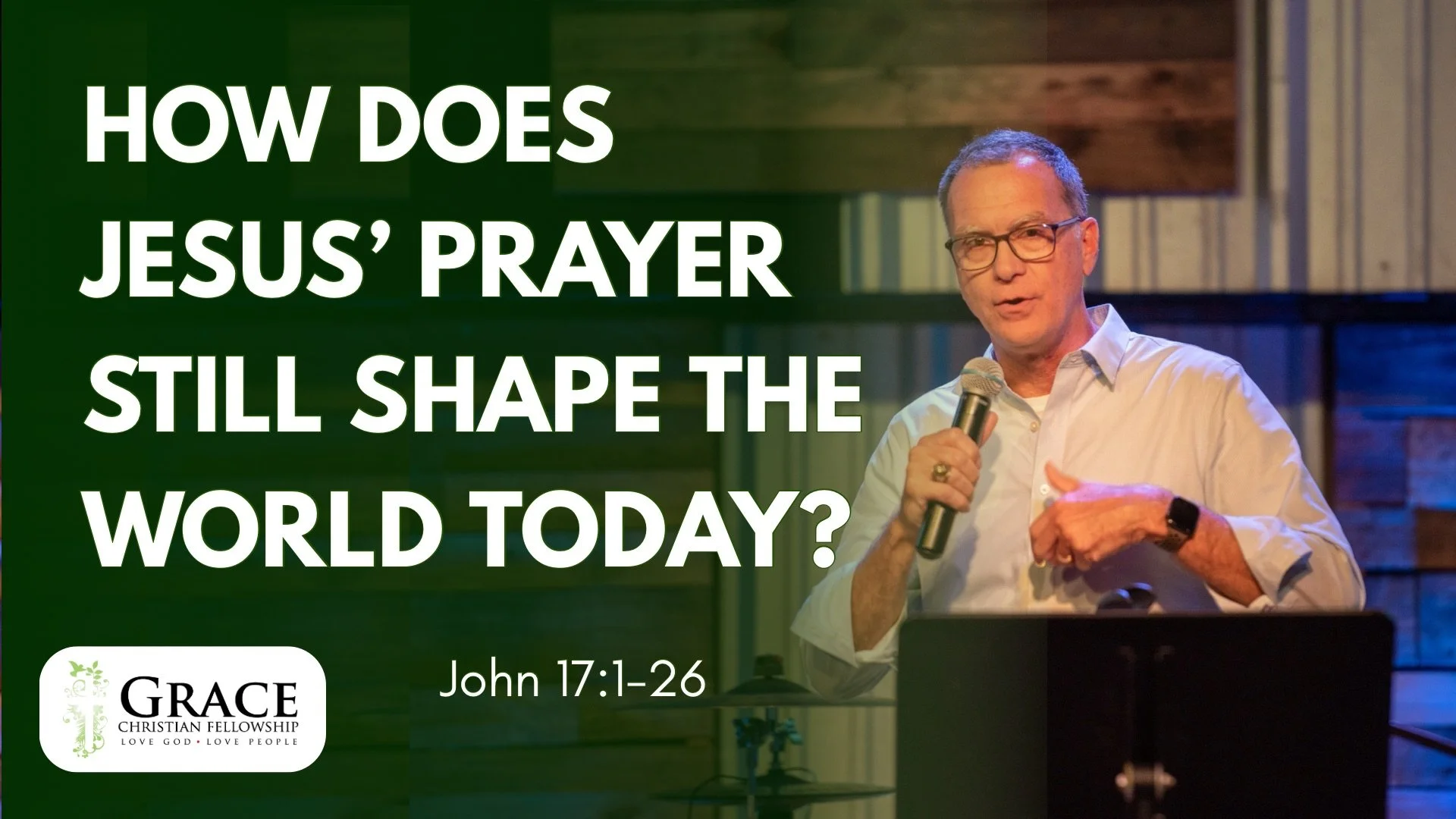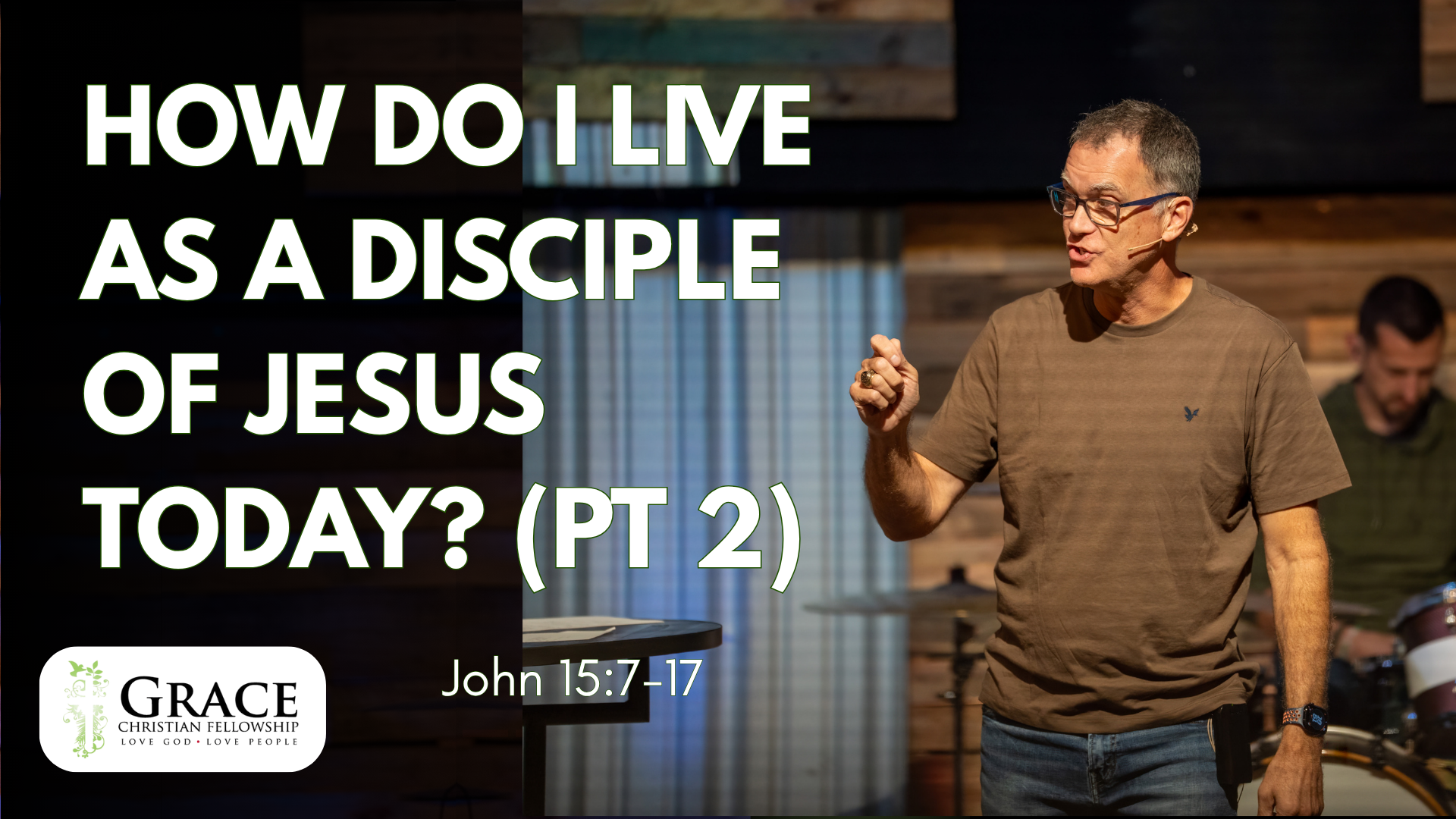Series: Signs & Glory
Title: Can God Still Use Me After I Fail?
Scripture: 📖 John 18:15-27; 21:15-17
Preacher: Darien Roger Gabriel
Bottom Line: Jesus restores Peter not just to relationship but to responsibility—because shepherding the flock is how Jesus continues His mission in the world.
INTRODUCTION
CONTEXT
📖 SERMON OUTLINE
CONCLUSION
NOTES
QUESTIONS TO CONSIDER
DISCUSSION QUESTIONS
🎥 YOUTUBE DESCRIPTION
MAIN REFERENCES USED
Opening prayer: Lord God, help us grow to be and do like Jesus, while abiding in him and leading others to do the same.
INTRODUCTION
Illustration: Chuck Colson—The Question That Haunted Him
When Chuck Colson, one of President Nixon’s top advisors, was arrested during the Watergate scandal, he went from the Oval Office to a federal prison cell almost overnight.
Before he entered prison, he wrote in his journal:
“Everything I’ve built is gone.
My reputation is destroyed.
My family is ashamed.
And God can’t possibly use me now.”
He later said the most painful moment wasn’t the trial—
it was the first night in prison.
He sat alone in a cold cell, staring at concrete walls, and whispered the question that haunted him:
“Lord… is my life over?
Can You still use me after what I’ve done?”
That is the question of a man who has failed.
That is the question of a man who believes he is disqualified.
And that is the same question Peter carried after denying Jesus three times.
Colson thought his future was finished.
But God met him in prison with grace, forgiveness, and a new mission.
When he was released, he founded Prison Fellowship, which today is the largest prison ministry in the world—impacting thousands of inmates and families with the gospel.
He said near the end of his life:
“My greatest failure became God’s greatest assignment.”
Bottom Line: Jesus restores Peter not just to relationship but to responsibility—because shepherding the flock is how Jesus continues His mission in the world.
CONTEXT
It's the night before the cross. The last supper has passed. The betrayal has happened in Jesus and his disciples are separated. Jesus is being interrogated, and Peter awaits outside by the fire.
Bottom Line: Jesus restores Peter not just to relationship but to responsibility—because shepherding the flock is how Jesus continues His mission in the world.
SERMON OUTLINE (with help from ChatGPT and Kent Hughes)
I. PETER’S FAILURE AND JESUS’ GRACE (John 18:15–27; 21:9–14)
A. The charcoal fire of denial
• Night, cold, fear
• Standing with the wrong crowd
• “I am not” vs. Jesus’ “I AM”
B. The charcoal fire of restoration
• Morning, warmth, grace
• Jesus initiates breakfast and fellowship
• Grace confronts the place of failure
Key idea: Jesus breaks Peter to heal Peter, not to shame him.
II. JESUS RESTORES PETER TO A SHEPHERDING MISSION (John 21:15–17)
(Each “Do you love Me?” is followed by a mission task.)
This is the heart of the text.
III. THE FIVE SHEPHERDING TASKS JESUS CALLS PETER (AND US) TO
These reflect Jesus’ own mission in John:
1. Calling the Flock
“Do you love Me?” → “Feed my lambs.”
• Shepherds help others recognize Jesus’ voice (John 10:3–4).
• Jesus calls Peter to invite, gather, initiate discipleship with those who are young in the faith.
Application:
We call people to Jesus out of love for Jesus, not guilt or pressure.
2. Feeding the Flock
“Feed my lambs… feed my sheep.”
• Feeding = teaching truth, giving spiritual nourishment (John 6:35; 8:31–32).
• A church can’t thrive without a steady diet of Jesus’ words.
Application:
We teach the Word—at home, in groups, in relationships—because sheep starve without it.
3. Leading the Flock
“Shepherd my sheep.” (poimaínō)
• Shepherding includes guiding, setting direction, helping people follow Jesus.
• Jesus led His disciples toward obedience, mission, service, and sacrifice.
Application:
Leadership in the church is never about control, but direction toward Jesus.
4. Protecting the Flock
(Implied in poimaínō + the contrast with wolves in John 10.)
• Shepherds guard the sheep against false teaching, spiritual danger, sin patterns, and discouragement.
• Love protects (John 10:12–13).
Application:
Shepherding means stepping in, warning, correcting, and caring.
5. Gathering the Flock
Echo of John 10:16 — “I have other sheep… I must bring them also.”
• Shepherding isn’t only nurture; it’s mission.
• Jesus is still gathering sheep through the shepherding of His people.
Application:
Mission flows from shepherding—a healthy, discipled church becomes a reproducing church.
IV. WHY SHEPHERDING ADVANCES JESUS’ MISSION
Tie in John 20:21 and John 17.
A. Jesus’ mission was shepherding people into life.
B. Peter continues Jesus’ mission by shepherding His church.
C. The church continues Jesus’ mission when we shepherd one another.
Love leads to shepherding; shepherding leads to mission.
V. JESUS’ RESTORATION OF PETER IS OUR STORY (APPLICATION)
A. Jesus restores failures—not to sidelines, but to service.
Your past doesn’t disqualify you; it becomes the place of commissioning.
B. Love for Jesus expresses itself in care for His people.
Not talk, not sentiment—but shepherding.
C. Every Christian is called to shepherd someone.
• Parents shepherd children
• Mentors shepherd younger believers
• Groups shepherd one another
• Leaders shepherd the church
• The church shepherds the city
CONCLUSION
Return to the two fires:
• The first represents what we break.
• The second represents what Jesus builds.
And Jesus still asks:
“Do you love Me?”
Then shepherd My people.
Because that’s how My mission moves forward.”
Bottom Line: Jesus restores Peter not just to relationship but to responsibility—because shepherding the flock is how Jesus continues His mission in the world.
INVITATION
What about you?
Peter puts it all in perspective in his first sermon:
““Therefore let all Israel be assured of this: God has made this Jesus, whom you crucified, both Lord and Messiah.” When the people heard this, they were cut to the heart and said to Peter and the other apostles, “Brothers, what shall we do?” Peter replied, “Repent and be baptized, every one of you, in the name of Jesus Christ for the forgiveness of your sins. And you will receive the gift of the Holy Spirit. The promise is for you and your children and for all who are far off—for all whom the Lord our God will call.”” Acts 2:36-39 NIV
How do we respond? Answer 2 questions:
Take out a card or piece of paper right now. Write down the answer to these questions:
What is God saying to me right now?
What am I going to do about it? Write this down on a sheet of paper.
What I hear you saying, Lord, is ___________________.
[my name] is going to believe/do __________________________________________________ as a result.
Finally, share this with your Home or Mission group this week when you gather as a testimony about what God is doing in your life. You don’t have to get too specific to give him praise.
Lord's Supper, 1 Cor 11:23-26 is good passage.
Also, say something like, "Christ has died, Christ is risen, Christ will come again." (past, present, and future)
Pray
NOTES
QUESTIONS TO CONSIDER
What do I want them to know?
Why do I want them to know it?
What do I want them to do?
Why do I want them to do it?
How do they do this?
DISCUSSION QUESTIONS
Discovery Bible Study process: https://www.dbsguide.org/
Read the passage together.
Retell the story in your own words.
Discovery the story
What does this story tell me about God?
What does this story tell me about people?
If this is really true, what should I do?
What is God saying to you right now? (Write this down)
What are you going to do about it? (Write this down)
Who am I going to tell about this?
Find our sermons, podcasts, discussion questions and notes at https://www.gracetoday.net/podcast
Alternate Discussion Questions (by Jeff Vanderstelt): Based on this passage:
Who is God?
What has he done/is he doing/is he going to do?
Who am I? (In light of 1 & 2)
What do I do? (In light of who I am)
How do I do it?
Final Questions (Write this down)
What is God saying to you right now?
What are you going to do about it?
🎥 YOUTUBE DESCRIPTION
Title: Can God Still Use Me After I Fail?
Passages: John 18:15–27; John 21:15–17
Speaker: Pastor Darien Gabriel
Grace Christian Fellowship — Charleston, SC
Failure isn’t the end of your story. In today’s message, we look at one of the most dramatic collapses and one of the most beautiful comebacks in the Bible—the story of Peter.
In John 18, Peter denies Jesus three times. Fear, shame, and pressure overwhelm him.
In John 21, the resurrected Jesus meets Peter—not with condemnation—but with restoration, recommissioning, and a renewed call to shepherd God’s people.
If you’ve ever wondered:
Can God still use me after I fail?
Does Jesus still want me—after I blew it?
Is my calling gone?
Peter’s story gives hope. Jesus isn’t finished with you. He restores us, recommissions us, and invites us back into His mission.
Main Themes:
• Failure doesn’t disqualify you
• Jesus pursues and restores broken disciples
• Shepherding is the heart of following Jesus
• Restoration leads to renewed mission
Whether you’re exploring faith, returning after a fall, or seeking fresh encouragement, this message will help you see Jesus’ grace in a whole new way.
👇 Chapters
(You can add timestamps after uploading.)
👇 Connect With Us
Grace Christian Fellowship
📍 Ladson / Charleston, SC
Sundays at 10:30 AM
👍 Like, 💬 comment, and subscribe for weekly messages that help you follow Jesus where you live, work, learn, and play.
MAIN REFERENCES USED
“John,” by R. Kent Hughes, Preaching the Word Commentary, Edited by Kent Hughes
Exalting Jesus in John, by Matt Carter & Josh Wredberg
The Gospels & Epistles of John, FF Bruce
John, RC Sproul
John, Köstenberger
The Gospel According to John, DA Carson
Let's Study John, Mark Johnston
The Light Has Come, Leslie Newbigin (TLHC)
The Visual Word, Patrick Schreiner (TVW)
“Look at the Book” by John Piper (LATB)
“The Bible Knowledge Commentary” by Walvoord, Zuck (BKC)
“The Bible Exposition Commentary” by Warren Wiersbe (BEC)
Thru The Bible with J. Vernon McGee (TTB)
Outline Bible, D Willmington (OB)
NIV Study Bible (NIVSB) https://www.biblica.com/resources/scholar-notes/niv-study-bible/
Chronological Life Application Study Bible (NLT)
ESV Study Bible (ESVSB) https://www.esv.org
The Bible Project https://bibleproject.com
Nicky Gumbel bible reading plan app or via YouVersion
ChatGPT AI
Read More















